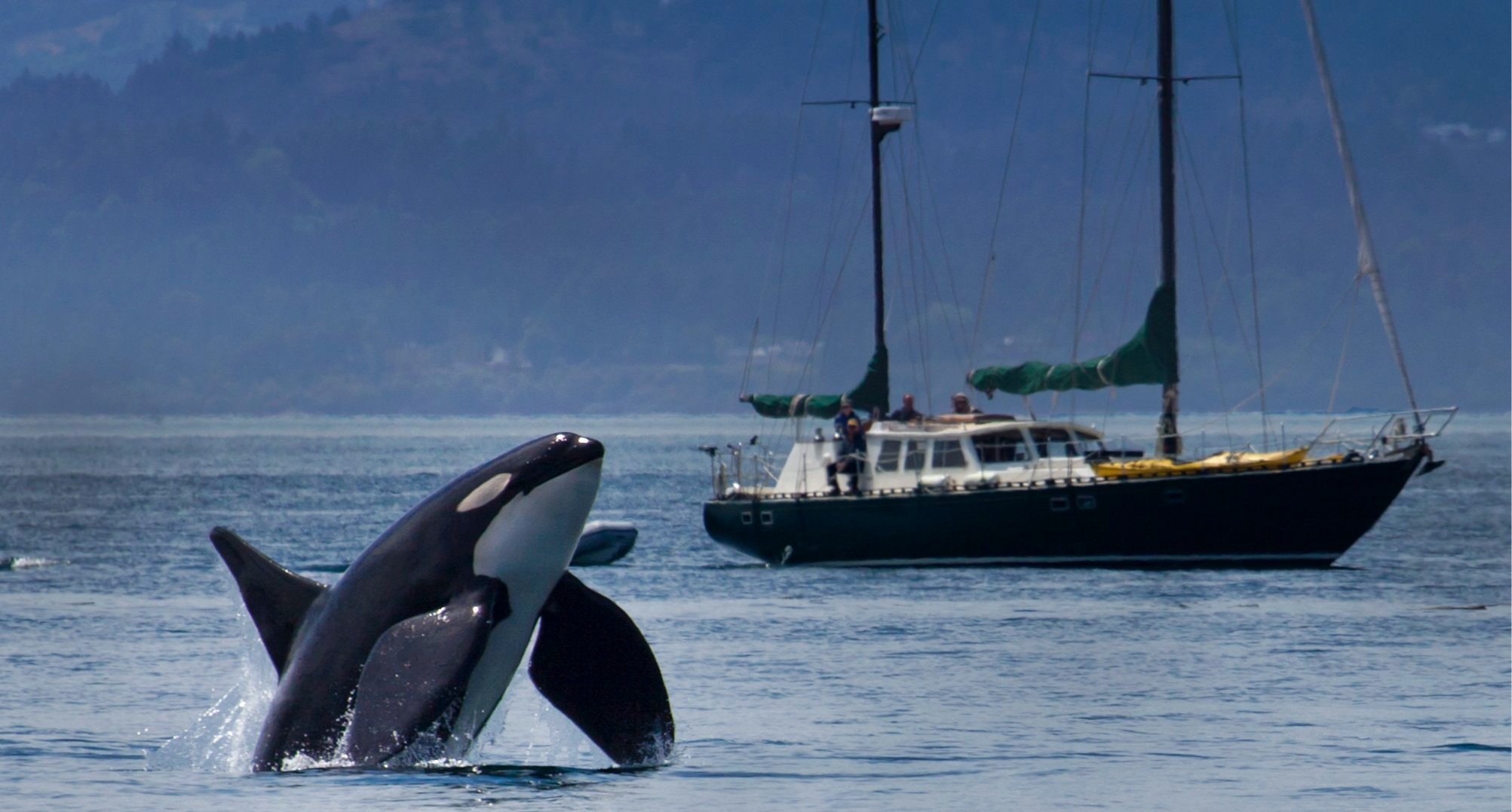Unveiling the Truth Behind Orca Attacks – Revenge or Playful Misunderstandings?
By Amy Braman, Marine Biology ‘24
Southern Resident breaching in the Salish Sea alongside the type of water vessel that is common amongst physical encounters (Image Credit: Chase Dekker).
Imagine sailing off the coast of Portugal, feeling the wind in your hair and the refreshing ocean breeze. The rocking of the ocean waves is suddenly interrupted by a large slam to the side of your vessel. You then notice your boat has been surrounded by a pod of killer whales. Is your boat under attack?
For sailor Artur Napoleao, similar questions were running through his mind in October 2022 when he found his boat surrounded. Following the initial shock, he reported that he “calmed down once [he] stopped the boat and saw how gentle the orcas were.” The pod responsible for this interaction has been targeting non-motorized vehicles, like sail boats, in the coastal waters of Portugal, Spain, and France. Encounters in this region have increased since 2020, prompting these “attacks” to make global headlines. In about 60 reported cases, killer whales have done significant damage to boats, including piercing holes in the vessels, removing rudders, and even sinking three water crafts. Though, none of these have resulted in the loss of human life. As orca-human interactions have increased, so has the demand for a reasoning behind why some orcas are exhibiting this behavior.
Dr. Deborah Giles, a killer whale specialist and professor at University of Washington’s Friday Harbor Labs, has commented on these occurrences, claiming they “are just animals interacting with things in their environment” and are not of malicious intent. As an orca researcher based in the Salish Sea, she has encountered these animals hundreds of times. Giles emphasizes the intelligence of these animals, and states that “if they were out [to harm] the vessel, they would do a lot more damage than they have done.” Dr. Robert Pitman, from Oregon State University, wanted to debunk the current theories behind the attacks. There has been some speculation of this behavior symbolizing the whales’ vendetta against humans. Pitman commented on this hypothesis: “That’s a human pastime, killer whales don’t do revenge. It's definitely getting to be a problem, but it seems to me these are just killer whales having fun.”
This sort of playful behavior is not a new phenomenon. These highly-intelligent creatures are known to play with a variety of objects. Killer whales are also known to be extremely social and learn most of their behaviors from the elders within their family. They learn games from each other, much like kids teach each other tag on the playground. Giles theorizes that the encounters are likely due to a matriarch orca that had a positive encounter with a boat, chose to teach it to her family, and from there her descendants have mimicked her behavior much like a recent fad.
The evolving dynamics between humans and orcas in these coastal waters underscore the need for a deeper understanding of these intelligent animals. Given how we have treated orcas in the past, it seems possible that the whales are taking revenge. However, intel from orca experts suggests these animals are exploring their curiosity of non-motorized vessels in their territory. Going forward, sailors should navigate with caution and respect, but without the assumption of an attack.
Two adults and one baby orca breach the waters of Kenai Fjords National Park in Alaska (Image Credit: National Parks Gallery).


